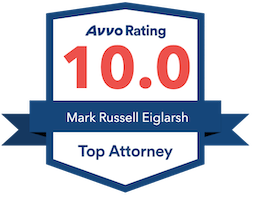Fort Lauderdale DUI Process
Famous for its beaches and semi-tropical climate, Fort Lauderdale attracts millions of visitors from around the world per year. As the seventh largest city in Florida and the largest of Broward County’s 30 municipalities, Fort Lauderdale’s Police Department generates thousands of cases each year.
As a result of numerous bars, nightclubs, and casinos located in and near this area, one of the most common charges processed in Broward County courthouses is driving under the influence (DUI) in violation of Florida statute 316.193.
1. Fort Lauderdale DUI Investigation
The majority of Fort Lauderdale drunk driving investigations and arrests take place after a law enforcement officer on duty witnesses a driver breaking the Florida Vehicle Code or another law.
Whatever the offense, the Fort Lauderdale law enforcement officer must have reasonable suspicion that you have committed, are committing, or were about to commit a crime to stop you. This burden of proof is lesser than probable cause, but the officer cannot justify a stop based on mere speculation.
One the car has been stopped, the officer will look for any evident physical signs of intoxication from the driver, such as slurred speech, bloodshot and watery eyes, or an odor resembling alcohol on the driver’s breath. Typically, the officer will ask if the driver has been drinking.
If the officer notices enough to make them believe the driver may be under the influence of drugs or alcohol, they will ask the driver to perform numerous Field Sobriety Tests. Examples of these tests include standing on one leg and walking heel-to-toe. Additionally, Fort Lauderdale law enforcement officers may ask the driver to submit to a breathalyzer test. Per Florida’s consent laws, all drivers are presumed to have given consent to have their breath-alcohol content measured when they get behind the wheel. If a driver refuses to submit to a breathalyzer, they face an automatic one-year license suspension.
A traffic collision may also initiate a Fort Lauderdale Driving Under the Influence investigation and arrest if there was any suspicion that one or more of the drivers involved may have been drinking. Additionally, members of the public may report drunk driving. Anyone who observes a driver who appears drunk is encouraged to call 911, and law enforcement officers will attempt to track down the suspect. In these instances, law enforcement officers do not need to observe the driving conduct first-hand in order to uphold a DUI arrest and charge.
DUI checkpoints also serve as an additional tool used by law enforcement agencies in and around Fort Lauderdale to monitor and enforce DUI laws. These checkpoints are usually organized during days and times when drunk driving is known to be more prevalent. The checkpoint permits Fort Lauderdale law enforcement officers to stop any driver and execute a DUI investigation. While checkpoints allow Fort Lauderdale law enforcement officers to pull over any driver without reasonable suspicion to do so, they still must follow specific guidelines established by the Florida Supreme Court.
2. Fort Lauderdale DUI Arrest
If a Fort Lauderdale law enforcement officer decides there is sufficient evidence that the driver is under the influence, they will arrest the suspect for Driving Under the Influence and take that individual to the police station for booking and further testing. The suspect will be transported to the nearest testing facility, which usually includes the Broward Sheriff’s Office B.A.T. Unit. After the chemical test of the suspect’s breath or urine, the suspect is typically booked into the Broward Sherriff’s Office, located at 2601 West Broward Boulevard, Fort Lauderdale, FL 33312.
Assuming no one was seriously injured or killed, the suspect is typically released on their own recognizance, unless their BAC falls to 0.05% or below. If the suspect has a BAC level of 0.08% or higher, the individual will be charged under Florida statute 316.193.
3. Fort Lauderdale DUI: Before the Arraignment
Having a private Fort Lauderdale DUI attorney involved in your case early on is crucial. The arresting agency will immediately suspend the suspect’s driver’s license upon their arrest and provide them with a temporary license. Many people are unaware that they only have ten days to request a hearing with the DMV to challenge the suspension. A Fort Lauderdale DUI attorney can take care of this right away in order to get the driver’s license reinstated.
Additionally, a Fort Lauderdale drunk driving attorney handling your case early in the DUI process may allow that attorney to interfere in the criminal filing process with the prosecutor or relevant law enforcement officer before charges are filed in order to have charges reduced or even dismissed.
If charges are brought, a Fort Lauderdale DUI lawyer will be needed to contest the People’s case in court and secure the best possible result for their client. Following receipt of all relevant discovery materials, the attorney may uncover severe faults in the prosecutor’s case, such as issues with the vehicle stop, contradictions in the official incident reports, or inaccuracies in the testing devices. A skilled and experienced Fort Lauderdale DUI attorney can make a huge difference in whether or not a case is dismissed or considerably reduced by the prosecutor.
A person charged with driving under the influence in Fort Lauderdale has three options for how they want to handle their case: they can represent themselves in court, they can ask for an attorney from the Public Defender’s office to be appointed, or they can hire a private Fort Lauderdale DUI attorney.
4. DMV Hearings
If someone is arrested on suspicion of DUI, the police will physically confiscate their driver’s license and notify them that their license will be suspended by the DMV. This person has ten days from that date to obtain an administrative hearing with the DMV to contest the license suspension. If they do not comply, their license will be immediately suspended. The suspension’s specifics are determined by a variety of variables. It is vital to have a private Fort Lauderdale DUI attorney represent you before the DMV if you are to have any chance of keeping your license.
5. Fort Lauderdale Arraignments
The driver will be scheduled for an arraignment where they are notified of the allegations against them. The defendant is required to enter a plea of guilty, not guilty, or no contest. This hearing can be attended by a private Fort Lauderdale DUI attorney on behalf of their client.
6 Fort Lauderdale Preliminary Hearing and Motions
When a defendant enters a not guilty plea, the case is usually brought before the court for a preliminary hearing. The judge decides whether there is enough evidence to make the defendant stand trial. In order to proceed with the charges of drunk driving, the judge uses the probable cause legal standard based on whether or not the prosecutor produced enough sufficient evidence that the defendant committed the crime.
You can also file pre-trial motions that are designed to uncover any mistakes or inconsistencies in the State’s case against you. For example, if you were arrested and there were any civil rights breaches, you might ask the judge to throw out evidence that was obtained illegally. Depending on the facts of the case, such motions will differ. If a prosecutor becomes aware of potential weaknesses in a case, such motions may cause a re-evaluation of the case, which frequently results in the charges being reduced or dismissed.
7. Beverly Hills Jury Trial
Unless you reach an agreement to address drunk driving charges or are successful in having them dismissed, your DUI case will go to a formal jury trial. While it is unlikely that a DUI charge is unlikely to be resolved, a private Fort Lauderdale DUI attorney can try the case at a jury trial.
At trial, the prosecutor must prove each element of the charge to the jury beyond a reasonable doubt. To do so, the prosecutor can use any evidence they have and will depend on testimony of government witnesses.
In addition to presenting witnesses and/or evidence that helps their client, a Fort Lauderdale DUI defense attorney is able to cross-examine the People’s witnesses.
The jury will be asked to return with a verdict of “guilty” or “not guilty” once the case has been presented to them. Before a person may be found guilty, all jurors must agree that he or she is guilty beyond a reasonable doubt. If the jurors cannot reach a unanimous decision, a mistrial may be declared.
8. After the Fort Lauderdale Trial
If a defendant is found not guilty at trial, their Fort Lauderdale defense attorney is able to pursue motions to seal or destroy any criminal records associated with the case. If the jury returns a verdict of guilty, the defendant is usually sentenced to DUI jail time and probation, which includes a mandatory alcohol education class, fines, community service, and license suspension.








